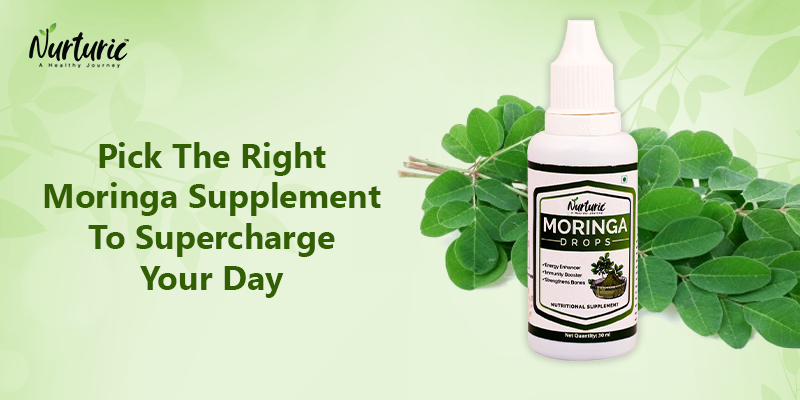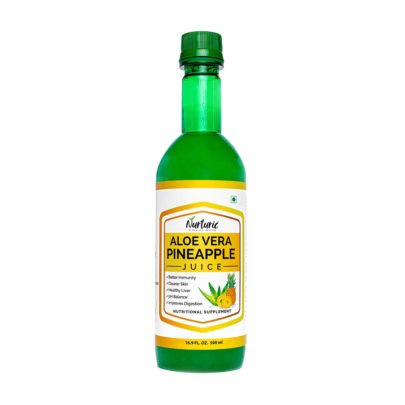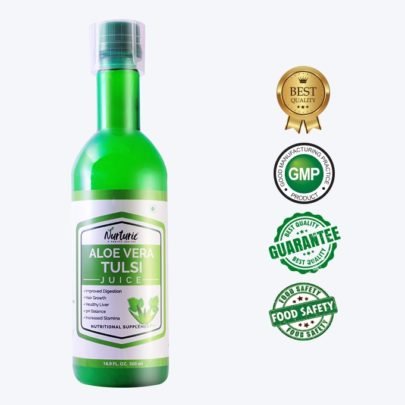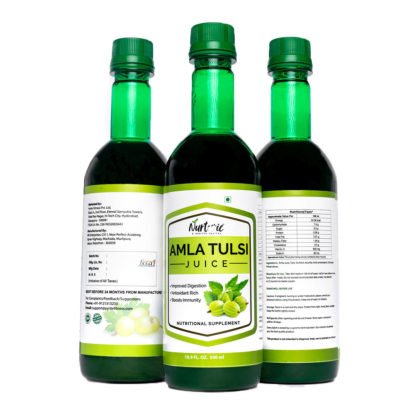- You have no items in your shopping cart
- Subtotal: ₹0.00
Every year a new superfood appears on the shelves of stores throughout the country. Superfoods have grown in popularity with the health-conscious population worldwide, whether it’s an ancient Chinese herbal remedy or a pseudo-grain produced by an indigenous culture in some parts of the world. The moringa tree, like other superfoods, provides a plethora of nutrients, vitamins, and minerals that our bodies require. But what exactly is a moringa tree? Scroll down to know more about moringa plant benefits.
The moringa tree, like other superfoods, provides a plethora of nutrients, vitamins, and minerals that our bodies require. But what exactly is a moringa tree? Scroll down to know more about moringa plant benefits.
What is Moringa? Why Do You Need It?
Moringa, also known as horseradish, is a plant that grows in the foothills of the mighty Himalayan mountains in northern India. It is a tree that is sometimes referred to as a Miracle Tree because all of its parts have nutritional and pharmacological properties. It is related to cabbage and broccoli and has a similar nutritional profile. The Moringa tree’s leaves are used to treat 300 diseases according to India’s ancient Ayurvedic medicine tradition. In addition, it has been prized in India for thousands of years as a rich source of nutrition and a potent curative. Moringa can be cultivated and grown in different countries, bringing health, nutrition, vitality, and beauty to people worldwide. Now that you’ve seen what moringa is, keep reading to learn more about it.
The Moringa tree’s leaves are used to treat 300 diseases according to India’s ancient Ayurvedic medicine tradition. In addition, it has been prized in India for thousands of years as a rich source of nutrition and a potent curative. Moringa can be cultivated and grown in different countries, bringing health, nutrition, vitality, and beauty to people worldwide. Now that you’ve seen what moringa is, keep reading to learn more about it.
10 Amazing Health Benefits Of Moringa
The moringa plant’s leaves are said to have a high medicinal value. Like so many traditional folk remedies, moringa’s healing and nourishing properties have sustained populations for centuries. Moringa leaves are high in protein and contain all essential amino acids. The leaves contain calcium, potassium, phosphorus, iron, and vitamins A, D, and C. Moringa has a wide range of benefits. It has been used for years in many countries to maintain good health and to treat malnutrition. It is used to provide more nutrition to nursing and pregnant women as well as their babies. It is also given to children to help them survive their critical first years of life. Let’s dig deeper into moringa uses
Moringa has a wide range of benefits. It has been used for years in many countries to maintain good health and to treat malnutrition. It is used to provide more nutrition to nursing and pregnant women as well as their babies. It is also given to children to help them survive their critical first years of life. Let’s dig deeper into moringa uses
Reduces Blood Sugar
High blood sugar levels can bring on diabetes. Moringa contains numerous health-promoting compounds that are beneficial to people who have insulin resistance. Many compounds found in moringa leaves may be involved in glucose homeostasis. It also has the benefit of increasing insulin activity and improving glucose uptake and utilization. It contains isothiocyanates, which help to keep blood glucose levels in check.
Improves Wound Healing
The first of moringa’s health benefits is that it improves wound healing. Its leaves, seeds, and roots contain blood-clotting properties that promote wound healing and
shorten clotting time. Moringa reduces the amount of time it takes for wounds, cuts, and scratches to stop bleeding. Studies have provided evidence relating to its effects on wound healing, such as strengthening broken skin, closing wounds, and reducing scar formation.
Acts As An Appetite Suppressant
The most challenging part of cutting down the calories is avoiding high-sugar, high-fat foods that many people crave. Moringa has a complete nutritional profile and boosts energy, reduces food cravings, and controls appetite. It contains the same amount of protein as dairy and is high in vitamins and minerals. It promotes blood sugar stability, preventing spikes and crashes that lead to weight gain. It helps maintain healthy levels of leptin, the fullness hormone and is beneficial to overall health.
Treats Urinary Disorder
People who consume moringa extracts have a lower risk of developing kidney, uterine, and bladder stones. Moringa’s high antioxidant content aids in the reduction of toxicity levels in the kidney. Its leaves are high in antimicrobial and antibacterial compounds, which aid in treating urinary tract infections and digestive issues. Moringa roots have anti-urolithiatic properties that can lower urinary oxalate levels in the body. Its extracts also prevent the formation of stone deposits and control the synthesis of endogenous oxalate.
Enhances Skin Health
Moringa is not only good for hair but also improves skin health, which is one of the other benefits of moringa. It is also well-known for its antiseptic and antimicrobial properties, which are used to treat acne. It stimulates the production of excess sebum and keeps dirt and bacteria from clogging the pores. If you want flawless skin, combine three drops of Moringa oil with coconut oil and apply the mixture to acne, blackheads, and scars for quick healing.
Treats Cancer
Moringa extracts help to prevent cancer because they contain phenolic components such as quercetin and kaempferol, which have anti-cancer properties. Niazimicin is an active compound found in moringa that helps to inhibit the growth of cancer cells. In addition, it inhibits the proliferation of malignant cells and aids in the induction of apoptosis, or programmed cell death, thereby aiding in the prevention of various types of cancers such as liver, skin and ovarian.
Detoxes Liver
Moringa leaves can help tuberculosis patients by reducing the harmful effects of anti-tubercular drugs. The leaves hasten the repair of liver cells. The leaves contain a high concentration of polyphenols, which protect the liver from oxidative damage and may even reduce it. They boost protein levels in the liver, which is responsible for blood detoxification, fat metabolism, and nutrient absorption, and it can only function properly if the liver enzymes are normal. Moringa leaves help to keep these liver enzymes in check.
Improves Bone Health
Bone strength and health are vital for overall health. If you have bone pain, start consuming moringa leaves regularly. These leaves are high in calcium, vitamin K and proteins, which help maintain bone health and prevent bone thinning. Moringa’s benefits for bones are ceaseless. It has anti-inflammatory properties, so they help with arthritis and may even heal damaged bones. They also fight osteoporosis and keep bones strong.
Treats Anaemia
Anaemia is a chronic illness where blood does not carry oxygen into the body’s cells with enough healthy red blood cells or haemoglobin. Moringa promotes iron absorption by your body, which helps to increase red blood cell levels and maintain overall blood parameters in your system. As a result, consuming moringa is a wise choice for those who suffer from anaemia-related symptoms such as tiredness and fatigue.
Improves Eye Health
Moringa not only improves brain health but also protects and improves eye health. This herb’s high antioxidant content makes it helpful in protecting the eyes from retinal damage. It prevents the thickening of capillary membranes, the dilation of retinal vessels, and the dysfunction of the retina. Its leaves have renoprotective effects by inhibiting retinal vessel dilatation and protecting the retinal vasculature. Furthermore, it prevents retinal dysfunction and capillary membrane thickening. Moringa leaves contain an abundance of Vitamin A, which promotes healthy eyes, clear vision, and the prevention of eye problems.
Treats Mood Disorders
If you’re feeling down, moringa may help you feel better. It is known to promote a happy and stable mood. It may improve brain health and memory as you get older. Furthermore, it is high in protein and the amino acid tryptophan, which produces serotonin hormone, helps control mood swings, maintain energy levels, and fight depression, fatigue, and insomnia.
In addition to its health benefits, the moringa plant has a diverse range of other benefits. Let’s look at how moringa can be used to treat or prevent other health conditions.
Who Needs It? Which Conditions Can It Treat or Prevent?
Moringa is the ultimate superfood, packed with vitamins, minerals, and enzymes that make it a true superfood in every sense of the word. Mauryan warriors in ancient India used to eat leaf extract on the battlefield to increase their stamina and strength. It treats infections, athlete’s foot, dandruff, gum disease, snakebite, warts, and wounds. In addition, it is used as an aphrodisiac and aids in the production of milk in nursing mothers. Along with all of the advantages, let us look at the conditions it can treat.
- Intestinal ulcers and spams
- Headache
- Heart problems
- High blood pressure
- Kidney stones
- Symptoms of menopause
- Asthma
- Diabetes
- Weight loss
- Lowers cholesterol and blood pressure
- Good for lactating mother
- Respiratory complications
Moringa offers a variety of nutrients that are beneficial to everyone. If your diet is deficient in nutrients, it can be massively beneficial to your health. We’ve discussed the moringa powder benefits as well as the precautions to take. Now let us bring up the side effects.
We’ve discussed the moringa powder benefits as well as the precautions to take. Now let us bring up the side effects.
Possible Side Effects
There are no side effects with taking organic moringa extract supplements. It is safe to use within the expiration date. However, the chemicals found in the plant’s root, bark, or flowers may be unsafe for pregnant women or nursing mothers to use. The leaves have a mild laxative effect, which may cause digestive issues in some people. Though it is very beneficial to your health, there are a few side effects that you should be aware of.
- Stomach upset
- Heartburn
- Gaseous distension
- Lower blood pressure
- Slowed heart rate
- Uterine contractions
- Cell mutations
- Nausea
These are some mild and common side effects. However, there is nothing to worry about. Just be watchful not to consume too much of it. Now that we’ve discussed the side effects and uses of moringa leaves, let’s look at how moringa meets our nutritional needs when we consume it regularly.
Now that we’ve discussed the side effects and uses of moringa leaves, let’s look at how moringa meets our nutritional needs when we consume it regularly.
Nutritional Information and Ingredients – Background
The leaves of moringa are versatile and can be added into the diet in various ways, and they are widely used in Indian cuisine. Moringa is nutritionally more dense than carrots, oranges and milk. It is packed with nutrients, folates, ascorbic acid, and vitamins beneficial to our health. This plant contains essential minerals such as calcium, magnesium, iron, potassium, phosphorus, and zinc. It contains 2 gm of protein, magnesium (8% RDA), vitamin B6 (19% RDA), iron (11% RDA), riboflavin (11% RDA), and vitamin A. (9 percent of the RDA). It also contains vital amino acids, which aid in the production of protein in our bodies.
It contains 2 gm of protein, magnesium (8% RDA), vitamin B6 (19% RDA), iron (11% RDA), riboflavin (11% RDA), and vitamin A. (9 percent of the RDA). It also contains vital amino acids, which aid in the production of protein in our bodies.
Now that you’ve learned about the nutritional benefits of moringa, let’s look at how to choose the best supplement.
How to Choose the Right Supplement and Where to Buy It From
Moringa’s nutritional and medicinal properties are well known. Moringa leaves, powder, drops, and capsules are available as supplements on several websites. It is natural to get confused by the numerous options available to you. Examine the ingredients listed on the label before purchasing supplements. Check to ensure that the product contains only moringa and no other fillers. Check the manufacturing date and If no date is specified, look for the manufacturing date and avoid purchasing products manufactured more than 6 months ago. If you want a completely natural supplement with no side effects, purchase Nurturic Moringa Drops, which are both safe and plant-based.
If you want a completely natural supplement with no side effects, purchase Nurturic Moringa Drops, which are both safe and plant-based.
Our Take
Moringa is an incredible asset to a healthy lifestyle. It packs a powerful nutritional punch. Millions of people rely on this plant to get the nutrients they require to thrive. Make these a part of your diet.
FAQs
1. What is the daily dosage of moringa drops?
You can take 10 drops twice a day. If your doctor advises you to take a higher dose to treat a specific condition, you may do so.
2. Who should not take Moringa?
Women trying to conceive and breastfeeding mothers are advised to consult a doctor before incorporating it into their daily regimen.
3. What are the side effects of moringa drops?
Moringa is likely safe when it is consumed within recommended limits. Excess consumption may cause mild side effects like nausea, stomach ache, heartburn and lower blood pressure.
4. Does moringa improve skin?
Moringa contains many nutrients that are good for your skin, such as vitamin A, which helps build collagen, and vitamin C, which helps fight the signs of ageing.
5. How long does it take to see the benefits of moringa?
It takes at least one month to see good results, and they improve and endure as well.
6. What conditions can moringa treat?
Moringa is well-known for its ability to cure a variety of diseases. It is great for your skin. It also protects your liver, treats cancer, and strengthens your bones.
7. Can Moringa help lower blood pressure?
Yes. It reduces high blood pressure by reducing vascular dysfunction and oxidative stress.
8. Can Moringa be used to treat wounds?
Yes. Blood-clotting properties are found in Moringa leaves. When taken regularly, it reduces clotting time, ensures bleeding stops faster and improves healing.
9. Can Moringa aid in the treatment of osteoarthritis?
It contains anti-inflammatory properties and an abundance of calcium, which aids in treating bone disorders and the prevention of arthritis disease progression.
10. How long can I consume moringa drops?
Moringa is considered safe for long-term consumption. You can reap all the benefits when consumed in moderation.











